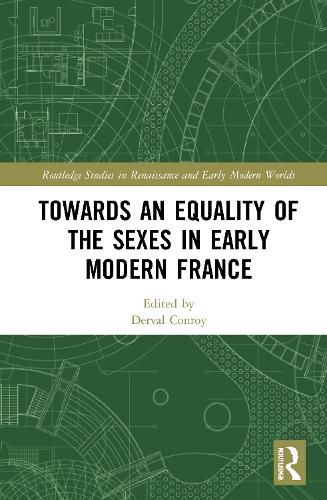Readings Newsletter
Become a Readings Member to make your shopping experience even easier.
Sign in or sign up for free!
You’re not far away from qualifying for FREE standard shipping within Australia
You’ve qualified for FREE standard shipping within Australia
The cart is loading…






This volume sets out to examine the ways in which an equality between the sexes is constructed, conceptualised, imagined or realised in early modern France, a period and a country which produced some of the earliest theorisations on equality. In so doing, it aims to contribute towards the development of the history of equality as an intellectual category within the history of political thought, and to situate the woman question within that history. The eleven chapters in the volume span the fields of political theory, philosophy, literature, history and history of ideas, bringing together literary scholars, historians, philosophers and scholars of political thought, and examining an extensive range of primary sources. Whilst most of the chapters focus on the conceptualisation of a moral, metaphysical or intellectual equality between the sexes, space is also given to concrete examples of a de facto gender equality in operation. The volume is aimed at scholars and graduate students of political thought, history of philosophy, women’s history and gender studies alike. It aims to throw light on the history of Western ideas of equality and difference, questions which continue to preoccupy cultural historians, philosophers, political theorists and feminist critics.
$9.00 standard shipping within Australia
FREE standard shipping within Australia for orders over $100.00
Express & International shipping calculated at checkout
This volume sets out to examine the ways in which an equality between the sexes is constructed, conceptualised, imagined or realised in early modern France, a period and a country which produced some of the earliest theorisations on equality. In so doing, it aims to contribute towards the development of the history of equality as an intellectual category within the history of political thought, and to situate the woman question within that history. The eleven chapters in the volume span the fields of political theory, philosophy, literature, history and history of ideas, bringing together literary scholars, historians, philosophers and scholars of political thought, and examining an extensive range of primary sources. Whilst most of the chapters focus on the conceptualisation of a moral, metaphysical or intellectual equality between the sexes, space is also given to concrete examples of a de facto gender equality in operation. The volume is aimed at scholars and graduate students of political thought, history of philosophy, women’s history and gender studies alike. It aims to throw light on the history of Western ideas of equality and difference, questions which continue to preoccupy cultural historians, philosophers, political theorists and feminist critics.